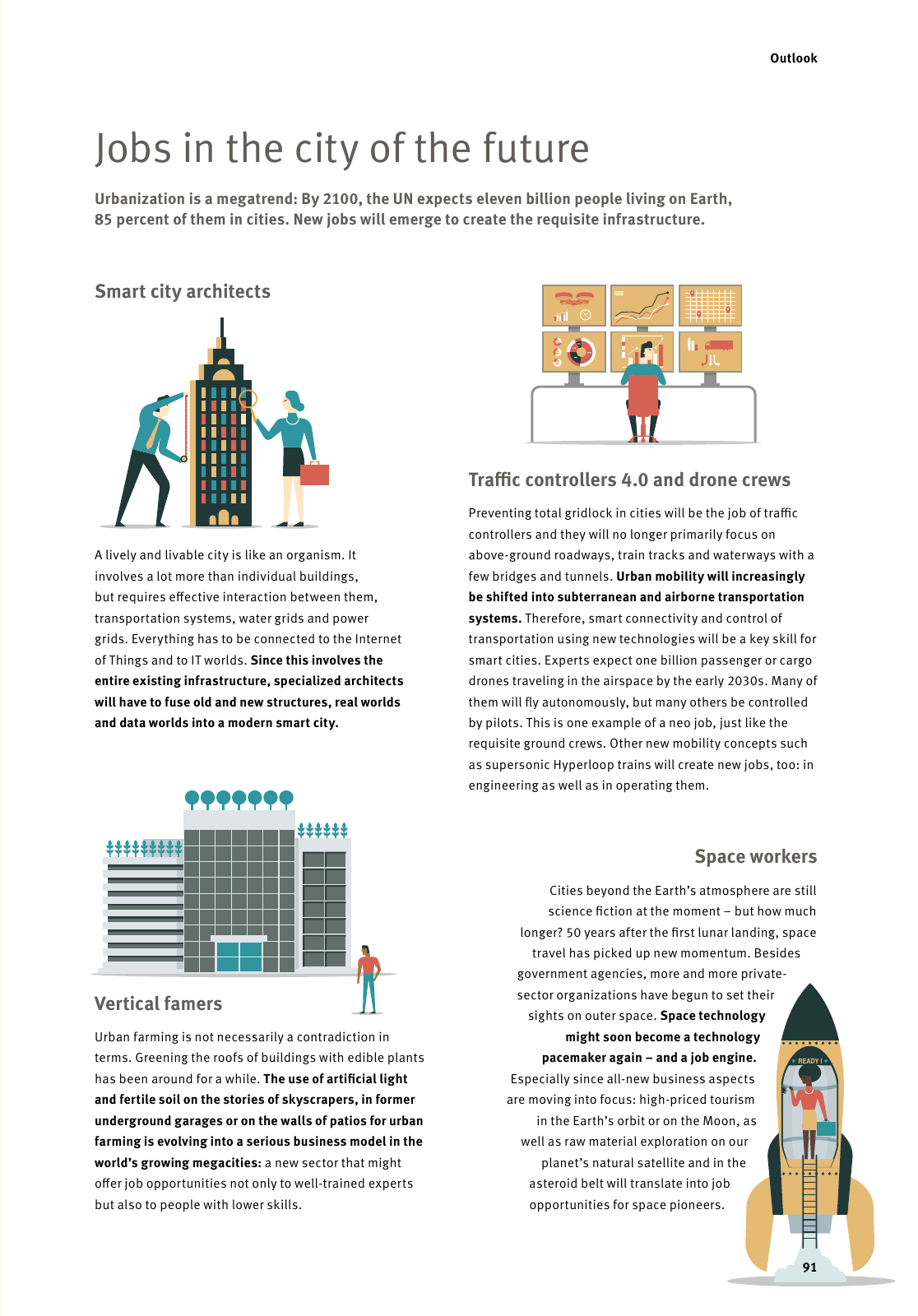Jobs in the city of the future Urbanization is a megatrend By 2100 the UN expects eleven billion people living on Earth 85 percent of them in cities New jobs will emerge to create the requisite infrastructure Smart city architects Traffic controllers 4 0 and drone crews Vertical famers Space workers A lively and livable city is like an organism It involves a lot more than individual buildings but requires effective interaction between them transportation systems water grids and power grids Everything has to be connected to the Internet of Things and to IT worlds Since this involves the entire existing infrastructure specialized architects will have to fuse old and new structures real worlds and data worlds into a modern smart city Preventing total gridlock in cities will be the job of traffic controllers and they will no longer primarily focus on above ground roadways train tracks and waterways with a few bridges and tunnels Urban mobility will increasingly be shifted into subterranean and airborne transportation systems Therefore smart connectivity and control of transportation using new technologies will be a key skill for smart cities Experts expect one billion passenger or cargo drones traveling in the airspace by the early 2030s Many of them will fly autonomously but many others be controlled by pilots This is one example of a neo job just like the requisite ground crews Other new mobility concepts such as supersonic Hyperloop trains will create new jobs too in engineering as well as in operating them Urban farming is not necessarily a contradiction in terms Greening the roofs of buildings with edible plants has been around for a while The use of artificial light and fertile soil on the stories of skyscrapers in former underground garages or on the walls of patios for urban farming is evolving into a serious business model in the world s growing megacities a new sector that might offer job opportunities not only to well trained experts but also to people with lower skills Cities beyond the Earth s atmosphere are still science fiction at the moment but how much longer 50 years after the first lunar landing space travel has picked up new momentum Besides government agencies more and more private sector organizations have begun to set their sights on outer space Space technology might soon become a technology pacemaker again and a job engine Especially since all new business aspects are moving into focus high priced tourism in the Earth s orbit or on the Moon as well as raw material exploration on our planet s natural satellite and in the asteroid belt will translate into job opportunities for space pioneers 91 Outlook

Hinweis: Dies ist eine maschinenlesbare No-Flash Ansicht.
Klicken Sie hier um zur Online-Version zu gelangen.
Klicken Sie hier um zur Online-Version zu gelangen.